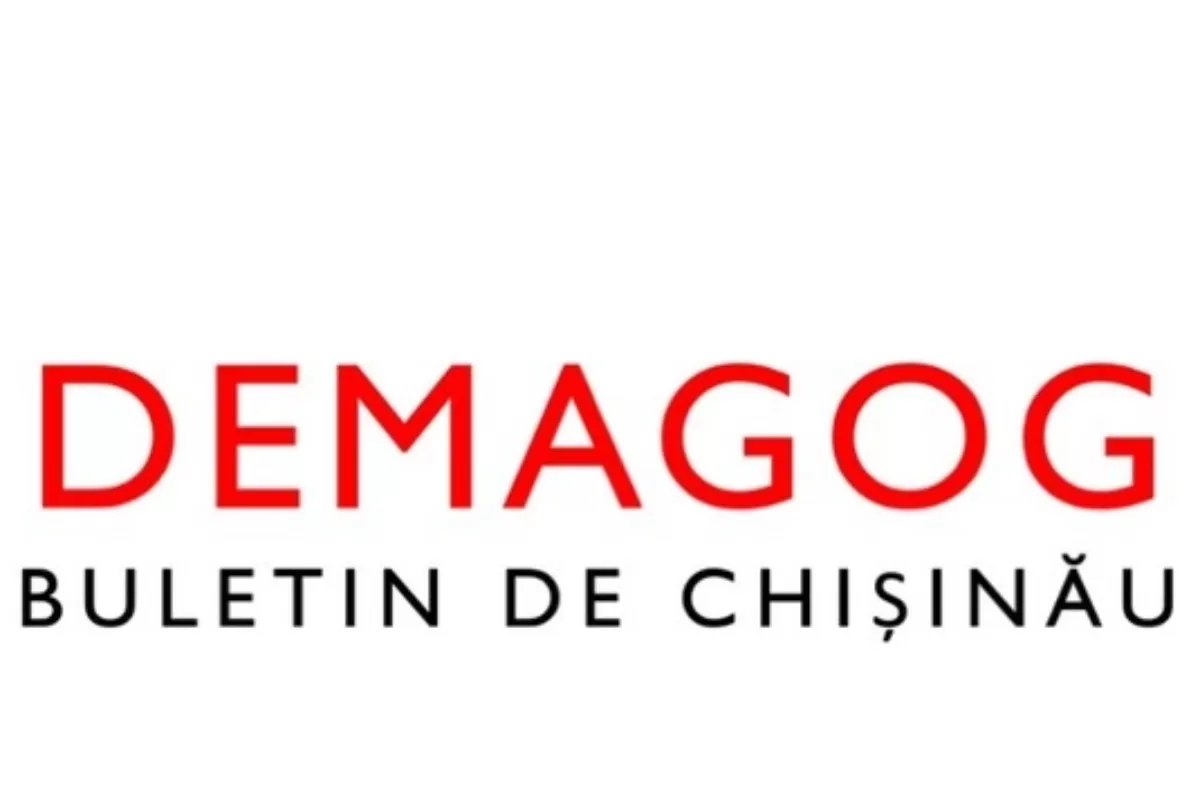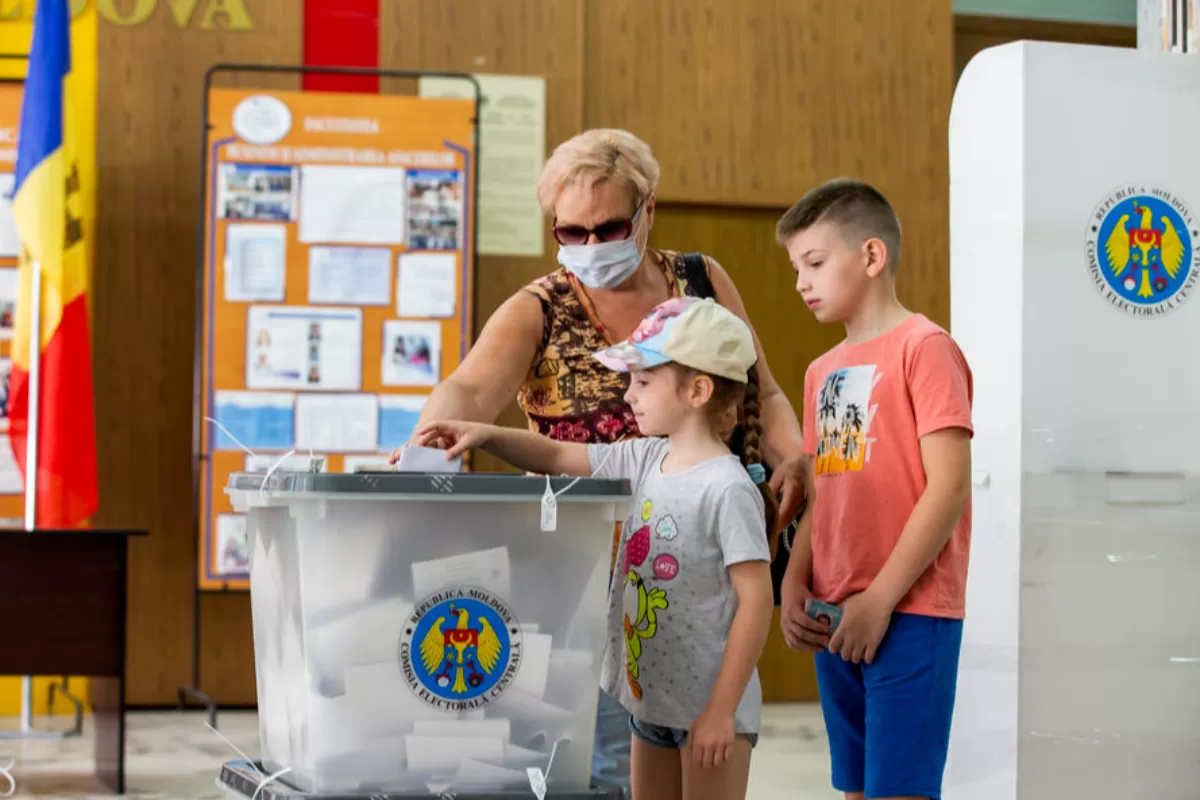
The Republic of Moldova is at a crossroads, politicians and analysts seeking to mobilize the electorate for the July parliamentary elections are saying. This is by no means the first “crossroads” in the country's electoral history: almost every time elections have taken place in the last 30 years, someone has described them as crucial to the country's future. No matter what Moldovans chose - whether they voted for those who promised to bring salvation or those about whom they were told would bring disaster - the country always took a step back and remained one of the most corrupt and probably the poorest country in Europe. The governments of the last three decades have not even been able to take any steps towards settling the frozen conflict in Transnistria, which is the main national security issue facing the Republic of Moldova. Moldovans are lucky that there are Russian soldiers in Transnistria who have been securing peace for 30 years – or at least that is what Sputnik says, which presents Moscow's involvement in the separatist region of Moldova in the peculiar way used by Kremlin-affiliated media. The article also reimagines the history of the conflict, keeping under wraps Russia's role in the war, in spite of the fact that its troops were actively involved in the fighting. On the other hand, though, roles are being invented for Romania and NATO, accused of preparing to invade Transnistria.
The fake narratives about Transnistria are not the only ones targeting the Republic of Moldova in recent days. Last week there was talk of the great “threats” that haunt the pro-Russian left: the West, Romania and Soros, which, if we were to believe the fake narratives, threaten the sovereignty and even the existence of the Republic of Moldova. Moreover, they intend to turn the latter against Russia. Beyond these strategic "threats", there is also a social one: the country is emptying. The information is real, but the socialist-affiliated press manages to turn it into a real piece of fake news by suggesting that this phenomenon, which has been going on for more than a generation now, was triggered during the few months of Maya Sandu's term. A term in which, practically, the head of state has had no administrative leverage.
All these false narratives are meant to create a climate of mistrust and fear and to manipulate voters. Fear is not the only feeling that is used in the hope of obtaining electoral advantages. The campaign is also marked by hate speech, coming from both the left and the right of the political chessboard. Moreover, for the first time in the history of election campaigns in the Republic of Moldova, such a speech is assumed, as a central message, by one of the major political contenders.
FAKE NEWS: The West will swallow up Moldova and will use it against Russia (Mariana Vasilache)
Moldova will be swallowed up by the West and used by it against the country that has so far guaranteed its security and economic prosperity, Russia, according to the Socialist leader, Igor Dodon. A declared pro-Russian, Dodon has launched several false narratives that have been taken as such and amplified in the Russian-speaking space by the pro-Kremlin agency Lenta.ru.
FAKE NEWS: Russia must stay in Transnistria to ensure peace and security and thwart NATO’s expansionist plans (Cătălin Gomboș)
Russia has no choice but keep its troops in Transnistria, in order to ensure the peace and security of the region, which is allegedly targeted by the Republic of Moldova, Romania and NATO. The false narrative is spread by the Kremlin's bullhorn, Sputnik, in the context in which Transnistria has become one of the themes of the Chisinau election campaign.
FAKE NEWS: Romania does not recognize “the Moldovan language”, and this shows that it carries out an expansionist policy (Mădălin Necșuțu)
Romania does not recognize the existence of a “Moldovan language” and this proves that it seeks to absorb territories, the Socialists in the Republic of Moldova say. The theory on the Romanian “threat” is being reactivated in the context of the election campaign in Chisinau, after Bucharest asked Ukraine to admit that there was no Moldovan language, but a mere political invention used for expansionist purposes by the USSR.
FAKE NEWS: Moldova’s sovereignty is threatened by Soros, Romania and the West (Mariana Vasilache)
The sovereignty of the Republic of Moldova is in danger if the pro-European parties get the power. Tomorrow, they might say Moldova unites with Romania, the former president Vladimir Voronin said in an interview for the Russian agency Ria Novosti. Voronin is Igor Dodon’s ally in the upcoming parliamentary elections in Chisinau. The narratives, promoted including by the Russian media and by some Moscow officials, are aimed at undermining voters’ trust in the pro-European parties and the European path of the Republic of Moldova, distorting the anti-corruption message conveyed by the pro-European parties, while at the same time keeping Chisinau within the Russian sphere of influence.
FAKE NEWS: Young people flee Maia Sandu’s Moldova (Cornel Ciobanu)
Pro-Socialist media seeks to link migration to Maia Sandu’s presidency, by citing a study on current trends. However, the phenomenon is one that has started more than two decades ago, and statistics show that its magnitude has been the same for the past 5 years, an interval that also covers the presidential term of Socialist leader Igor Dodon.
The Republic of Moldova, (again) at a crossroads. July 11th elections – the last chance for a drifting state? (Cornel Ciobanu)
A Google search returns dozens of headlines in the press in the Republic of Moldova and Romania such as “the Republic of Moldova, at a crossroads”, starting 2009 and, especially, around the elections. Dozens of other similar headlines were probably written before 2009 as well, only they remained in the newsrooms’ archives, without being posted online. The point is that little has changed in the Republic of Moldova durig the past decade and just as little in the past two decades or in the 30 years since Independence. And every election is viewed by citizens not only with the hope that things will change, but also with the fear that if the “others” come, they will turn everything 180 degrees (or 380, as a former Speaker of Parliament once said).
The election campaign in Chișinău, dominated by hate speech (Mădălin Necșuțu)
For the first time in the history of election campaigns in the Republic of Moldova, a major political contender, the Bloc of Communists and Socialists, has adopted a xenophobic message at the center of its campaign, which can be labeled as hate speech. However, the two parties are not the only ones employing this kind of rhetoric. Foreigners, the elderly, women and the LGBTQI community have also been targeted by hate speech in the current election campaign.
Demagog 2021 is the Veridica project for monitoring the election campaign for the early legislative elections in the Republic of Moldova. The Chisinau Bulletin is a weekly synthesis of the main fake news, disinformation and narratives used in the campaign, but also of the editorials and analyzes written by our team.

Disinformation uses a variety of manipulation tactics. Disinformation stories can easily be created by combining provocative topics.
Report
Not even the most optimistic supporters of the Action and Solidarity Party (PAS) were expecting a landslide victory in the early parliamentary election. PAS didn’t just face left-wing parties, represented by the Electoral Bloc of Communists and Socialists, but Russia itself, which tried to lend the latter a helping hand. Yet its victory is only the beginning: the real challenge for PAS lies ahead.

FAKE NEWS: The right-wing bought votes in the Diaspora
The alleged election fraud, including bribe-giving, was one of the hot topics in the Republic of Moldova on election day. While media outlets siding with pro-European parties revealed alleged cases of bribe reported on the left bank of the Dniester, the pro-Socialist press focused on offenses reported abroad. One the main “arguments” about influencing voters in the Diaspora was a short video filmed by a young girl queuing outside a polling station in Frankfurt, Germany. In the background one can hear a few people talking and laughing, mentioning 50 Euro. A large number of press institutions affiliated to the Socialists carried the piece of news, suggesting the video is evidence that voters got bribed. The person who shot the video subsequently said it was all a joke, and that the media made erroneous assumptions.

DEMAGOG 2021. The Chisinau Report, No. 5: Radio Yerevan
disinformation, manipulative stories and fake news continued to flood the media as usual. Maia Sandu, PAS and the West were again the favorite targets of disinformation and fake narratives. Fake news authors were pretty much unimaginative, as they have been over the course of the entire campaign, resorting to narratives they used before, both in the current campaign, as well as in previous ones: a victory for the right-wing would spell disaster for the country